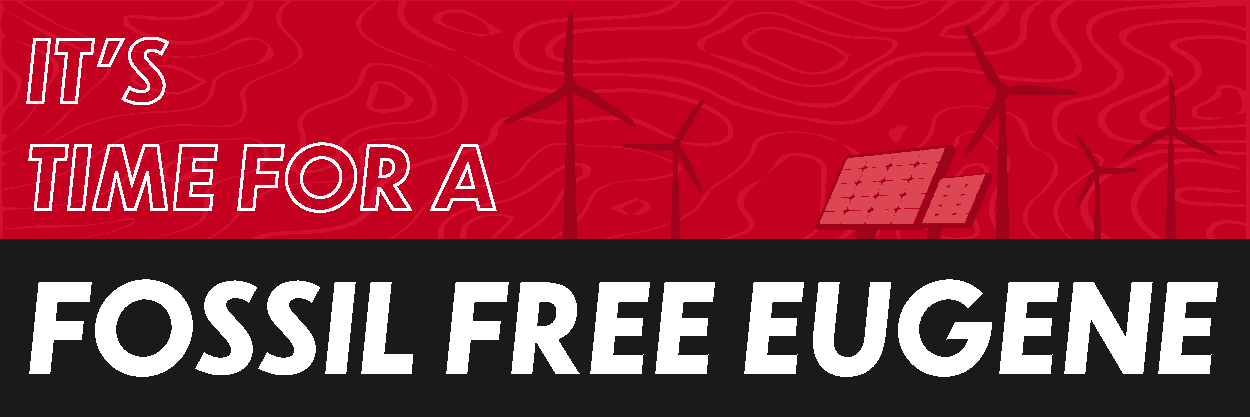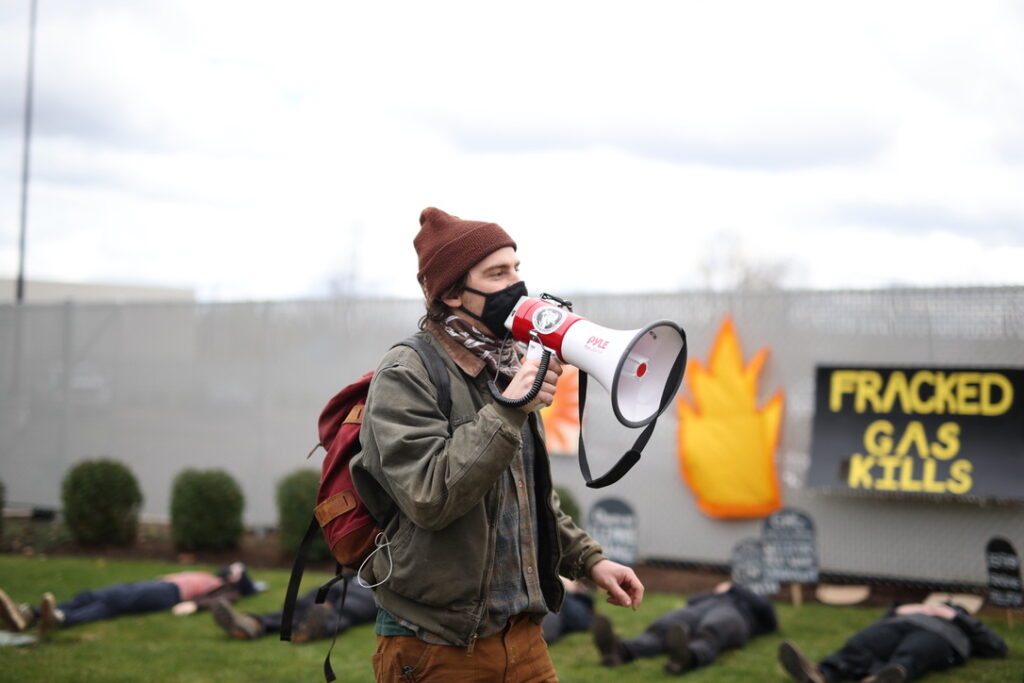Fossil Free Talking Points:
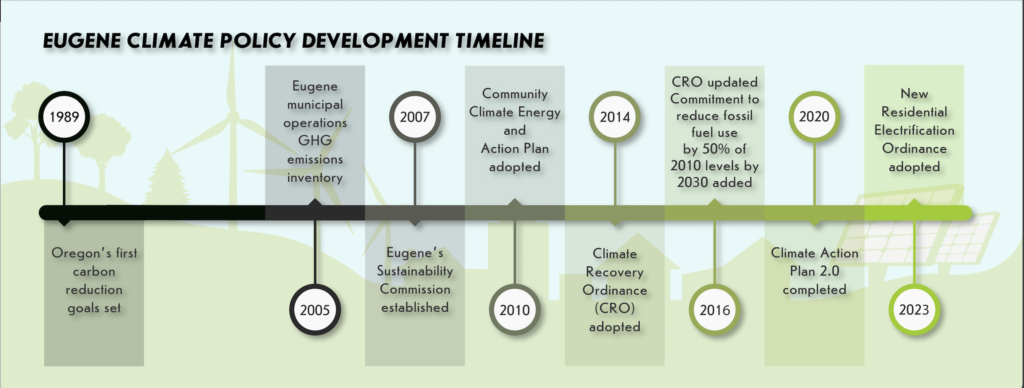
City of Eugene Climate Recovery Ordinance:
The Climate Recovery Ordinance (CRO) sets ambitious goals for our community including reducing city and community fossil fuel use levels by 50% of 2010 usage by 2030. The CRO also aims to reduce community wide greenhouse gas emissions by about 7.6% annually.
In order to meet the goals of the Climate Recovery Ordinance (CRO) the City of Eugene must:
- Require new residential, commercial, and industrial construction be built without gas hookups (except where required for feasibility reasons – e.g. certain types of food and beverage manufacturing).
- Incentivize existing buildings to switch from gas to electric appliances
- Oppose incentives from NW Natural for installing gas hookups or appliances
- Increase, by ordinance, the licensing fee on NW Natural’s operations in Eugene, and use the additional revenue to incentivize electric appliance retrofits locally.

Photo credit: Herr Olsen
“Natural” fracked gas as a “transition fuel”:
- Fracked gas is often referred to as a “transition fuel” or “bridge fuel” to fill the gap as we transition towards renewable energy. Fracked gas does produce significantly less CO2 emissions than coal or oil, however, the production of fracked gas releases methane, which is 86 times more potent than CO2 in a 20-year period (UCSUSA).
- Based on current evidence, it is likely that the total methane leakage exceeds the 3.2% threshold, beyond which gas becomes worse for the climate than coal for at least some period of time (PNAS).
- There is no need to add fracked gas infrastructure in Eugene when we have access to almost 100% renewable electricity (EWEB).
Fossil fuels and health:
- Homes with gas stoves have 50 percent to over 400 percent higher nitrogen dioxide levels in their indoor air than homes with electric stoves, which can lead to heart failure and asthma (RMI).
- One hour of cooking on a gas stove produces nitrogen dioxide levels that would be illegal if found outdoors (UCLA).
- 12.7% of all US childhood asthma cases have been linked to gas stove use in the home (Journal of Environmental Research and Public Health)
- Fossil fuels are responsible for 40% of all global deaths from air pollution according to a peer-reviewed study. 10,000 people die per day, or 3.6 million per year, from fossil fuel pollution, rivaling deaths from tobacco smoking (Harvard).
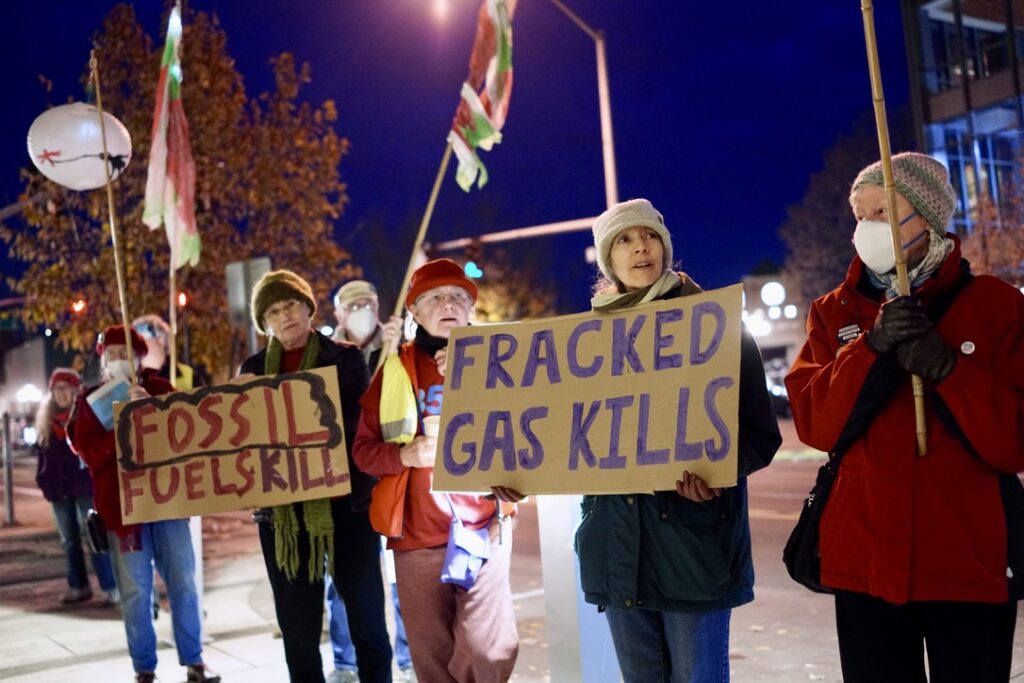
Photo credit: Robert Scherle
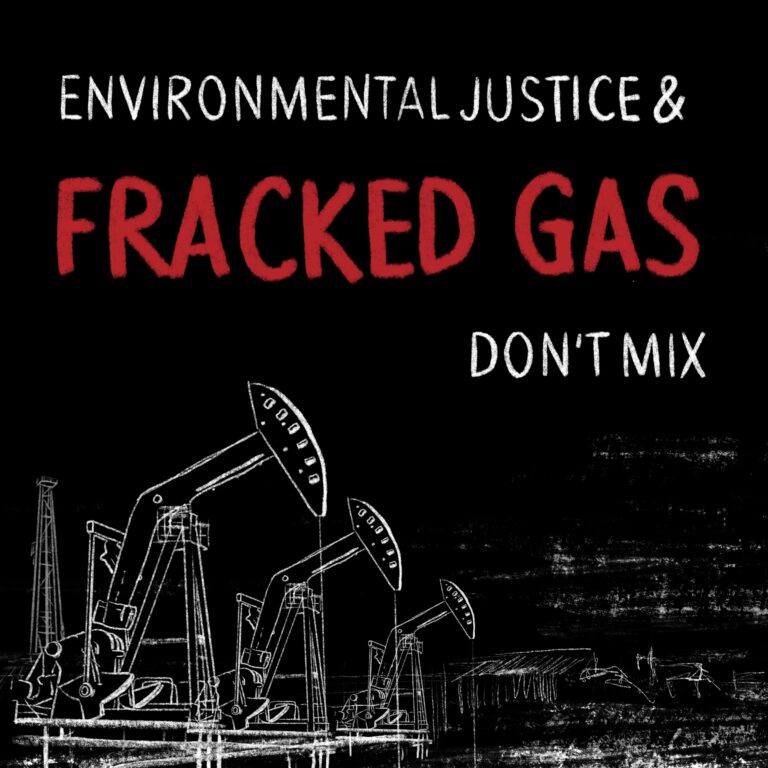
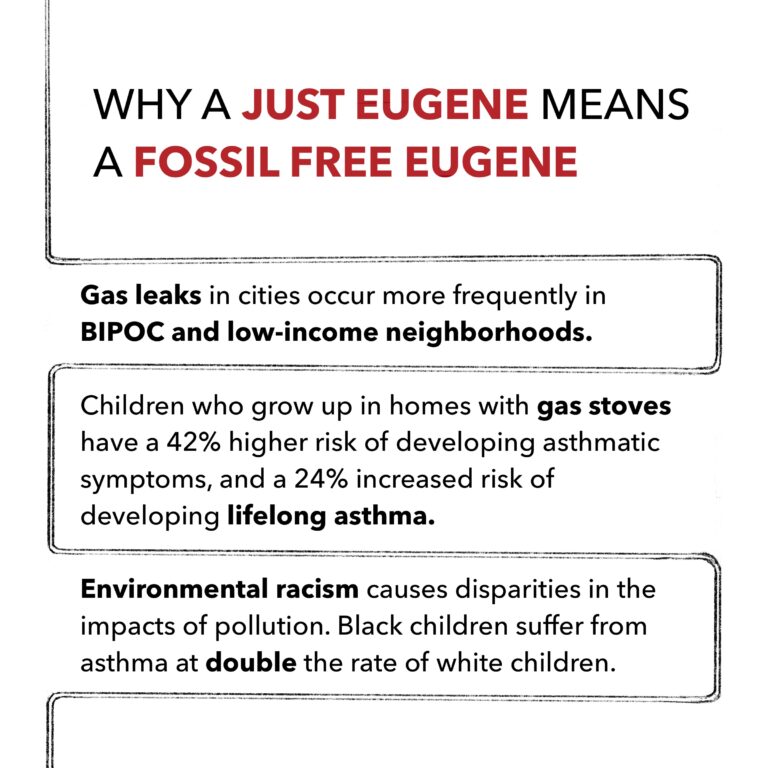
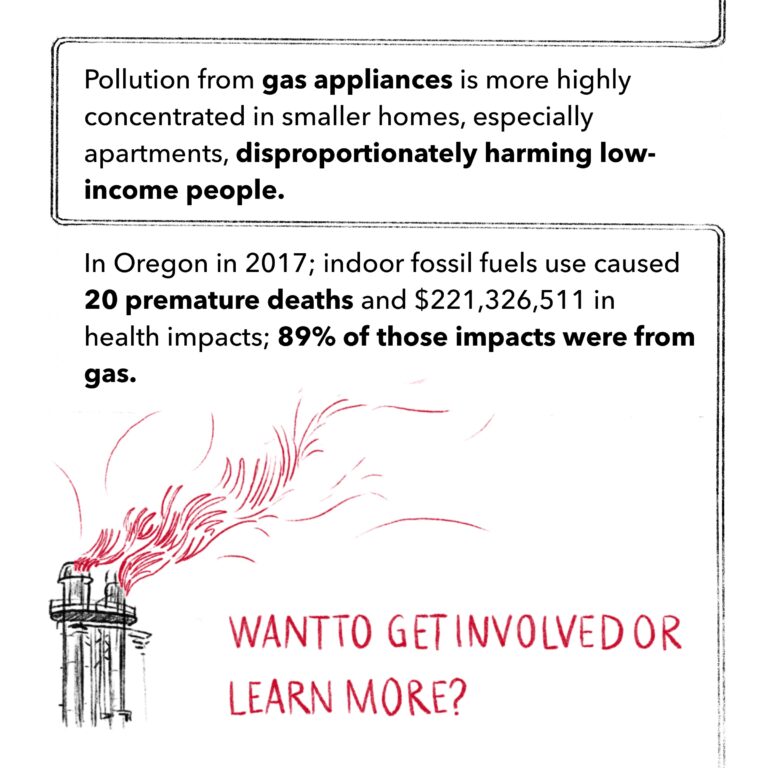
Infographic by Serotinous Art
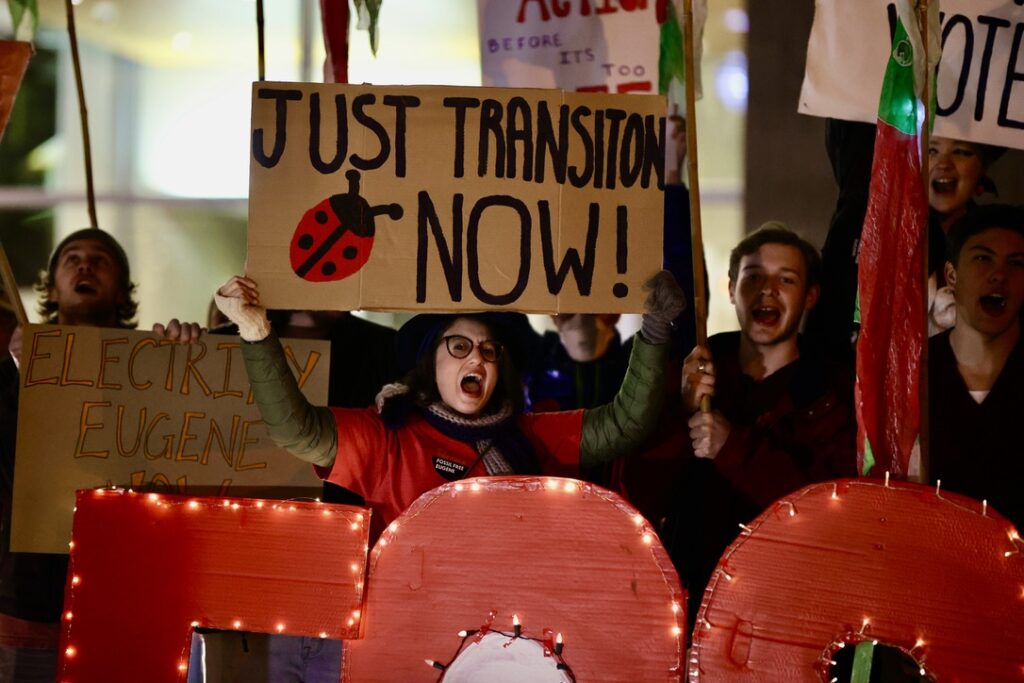
Photo credit: Robert Scherle
Justice and equity:
Air pollution and Covid-19:
- Research at Harvard University shows a strong relationship between exposure to air pollution and mortality from COVID-19. For every slight increase in the pollutant PM2.5 there is an 8% increase in the death rate from COVID-19, and communities of color are more likely to be exposed to this pollutant long term.
- Articles from the Guardian and the New York Times show the much higher death rate from COVID-19 for Black and Latino people.
- “Studies have clearly established that communities of color are disproportionately exposed to sharply higher levels of long-term air pollution because they are closer to congested streets and highways, as well as refineries and power plants…African Americans in California were 2.5 times more likely to go to the hospital as a result of air pollution. That may help explain why African Americans make up a disproportionate share of COVID-19 deaths in many areas” (Environmental Working Group).
From the Oregon Global Warming Commission 2020 Biennial Report:
With fewer options regarding where to live and work, and how to commute, lower-income and other disadvantaged Oregonians face greater exposure to environmental and climate-related risks. For example, several toxic air pollutants are produced when greenhouse gases are released into the atmosphere—from sources such as fossil-fueled power plants, industrial facilities, and fuel-combusting motor vehicles. Studies show that communities of color and low-income households are more likely to be exposed to these air pollutants, which have been shown to cause and amplify respiratory and cardiovascular illnesses. Oregonians with household incomes less than $20,000 are nearly three times as likely to have a heart attack as those with incomes above $50,000, and Black and Indigenous people have a higher prevalence of heart attacks than other racial and ethnic groups in the state (citation).
Low-income and disadvantaged households also have fewer resources to plan for, and recover from, climate impacts. For example, as the 2020 fire season showed, many vulnerable populations have housing that is less resilient to wildfire smoke and jobs that require them to work/commute outdoors during wildfire events, outbreaks of which are becoming more prevalent as the number and severity of wildfires grow. Wildfire smoke poses serious health threats, including asthma attacks, breathing problems, eye/lung/throat irritation, heart disease, and premature death. These health risks are particularly dangerous for Oregonians with preexisting respiratory and cardiovascular conditions and vulnerable groups, such as children and elderly, pregnant, and disabled residents. As greenhouse gases continue to be emitted, amplifying a wide range of climate hazards—from wildfires to floods, heatwaves, and droughts—, vulnerable and disadvantaged communities face unequal damages on multiple fronts.
